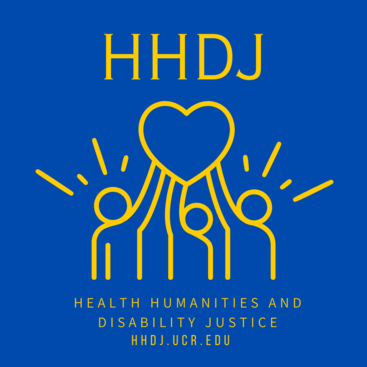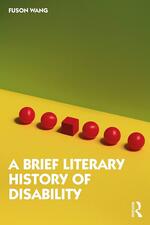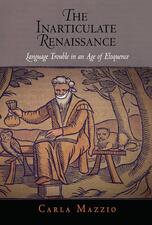
The Health Humanities and Disability Justice Lab
WHAT is the HHDJ Lab?
This lab started as part of a multi-year, multi-campus UC research grant from the Office of the President, entitled “Abolition Medicine and Disability Justice: Renewing the Social" (2023-2025, UCOP Grant ID: M23PR5992) and we have since been partnering with scholars, students and units across UCR's campus. Our goal is to ground research, teaching, and community outreach with disability justice as a central consideration. At UCR, our lab is called "The Health Humanities and Disability Justice Lab" (HHDJ), a name that is meant to invite interdisciplinary and intersectional conversations that address the gaps between the aims of the health humanities and disability studies and more conventional medical and institutional formations.
HOW does the HHDJ Lab work?
We host regular events and offer funding for works in progress, reading groups, workshops, community partnerships, and research talks that address our lab's goals:
- To be a platform for partners working in disability justice, competency, and awareness
- To centralize work (scholarly, pedagogical, activist) in health humanities & disability studies
- To offer resources for faculty, staff, and students to create accessible spaces and classrooms
- To foster emergent graduate student work in the health humanities and disability studies
- To host regular meetings for scholars and community partners to present work or lead discussions
- To host conferences to disseminate the results of research findings
- To build long-term research and teaching networks in health humanities and disability studies at UCR and across the UC system
WHAT is "disability justice"?
- Sins Invalid, a collective of queer, disabled women of color led by Patty Berne, Mia Mingus, and Stacey Milbern–developed the framework of disability justice that grounds our thinking for this project. Expanding on existing concepts of disability rights and disability studies, the disability justice framework seeks to secure equity and obtain rights for disabled people, taking special consideration of intersectionality and marginalization within an oppressive system. We also draw upon Dolmage and Lewiecki-Wilson (2010), who affirm that disability is a complex political and cultural effect of one’s interaction with an environment, not simply a medical condition to be eliminated. (More expansive blog entry on "disability justice" by a 2023-2024 HHDJ Graduate Fellow coming soon).
WHAT is "abolition medicine"?
- The original Lancet article “Abolition Medicine” by Iwai, Khan, and DasGupta (2020) inspired our initial thinking about the concept. The authors draw on W.E.B. Dubois’ concept of “abolition democracy” which works to dismantle systems of oppression while focusing on building new systems that foster health and a more just society. From examining the social structures that support juridical and extrajuridical violence to integrating longitudinal anti-racist training and abolishing race-based medicine in medical schools and practice, the article calls for specific actions that abolition medicine can engage. Join us for conversations about reimagining a healthier and more just society.
WHO is involved in the HHDJ Lab?
- Faculty, staff, graduate and undergraduate students pursuing or intending to pursue relevant research, teaching, and/or community-building
- UCR graduate students interested in applying for a fellowship or summer research position (especially early career graduate students years 1-3, possibly at UCR for 2.5-3 more years). For current HHDJ Graduate Fellows, click here.
- Community partners already engaged in this work, for whom we might provide a platform, and with whom we might develop resources for transformational teaching, research, and institutional building at UCR, across the UC, and in our Inland Empire community
- To get involved, apply for fellowships and/or event co-sponsorships, click here.


